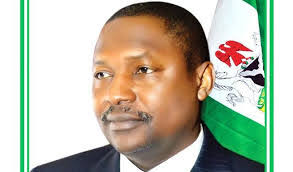The Permanent Secretary, Special Duties at the Federal Ministry of Finance, Budget and National Planning, Dr. Muhammed Dikwa, on Thursday disclosed that Federal Government had saved N594.09 billion from the implementation of the Whistle Blowing Policy since its inception in 2016.
Dikwa gave this hint while speaking at a workshop on the overview of whistle blowing policy in the country with the theme ‘Implementation of the Whistle Blower Policy in Nigeria, Issues, Challenges and Way Forward’ held in Abuja.
Noting that whistle blowing policy has come to stay in Nigeria with the country accepting it as a globally acceptable norm, the Permanent Secretary recalled that the introduction of the policy and the need for its legislation was informed by the Federal Government’s commitment to reducing cost of governance and bringing wastages and leakages to the barest minimum.
Specifically, he listed some of the factors that prompted government to introduce the policy as including the need to fight corruption and other financial crimes such as violations of the Treasury Single Account (TSA), elimination of ghost workers syndrome, and preventing staff from collecting double salaries in more than one organization.
Others are, cases of retirees without proper records but still collecting salaries, recoveries of salaries from retired diplomats for almost two years to the tune of N192 million, and non remittance of collected revenues by MDAs, amongst other crimes.
Expressing his delight that the policy has drastically reduced corruption in both civil and criminal cases, Dikwa, however, lamented that the implementation of the policy had not been without some challenges such as lack of proper legal framework, poor funding, lack of coordination and diverse information among relevant organisations, not following proper channel to give information, adding that, sometimes information given were fake, which however contradicts investigations.
On the way forward, he said that a Whistle Blowing and Witness Protection Bill 2019 was being put worked on by the government to make the policy effective and provide legal backing/administrative guide.
The Permanent Secretary urged participants at the forum to review critically the draft bill and make additional inputs before it would be forwarded to the National Assembly for deliberations and subsequent passage.
However, the Chairman of the Whistle Blowing Bill Draft Committee, Mrs. Peculiar Ohabor, a Deputy Director in the Federal Ministry of Justice, in her presentation said the draft bill which had 18 bits and 107 sections sprang up as a result of societies evolving, adding that countries like Canada, Senegal, United Kingdom, USA, and European Union have already accepted the policy, thereby necessitating the need for Nigeria to legalize and institutionalize it.






